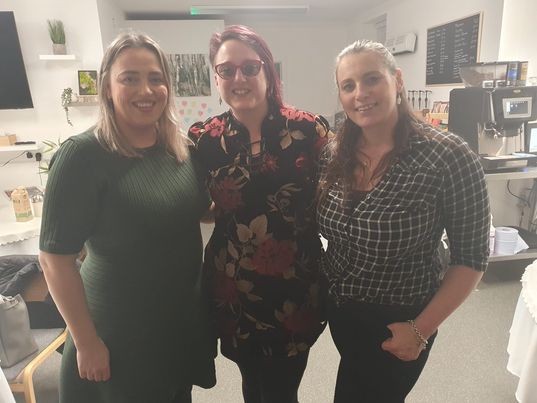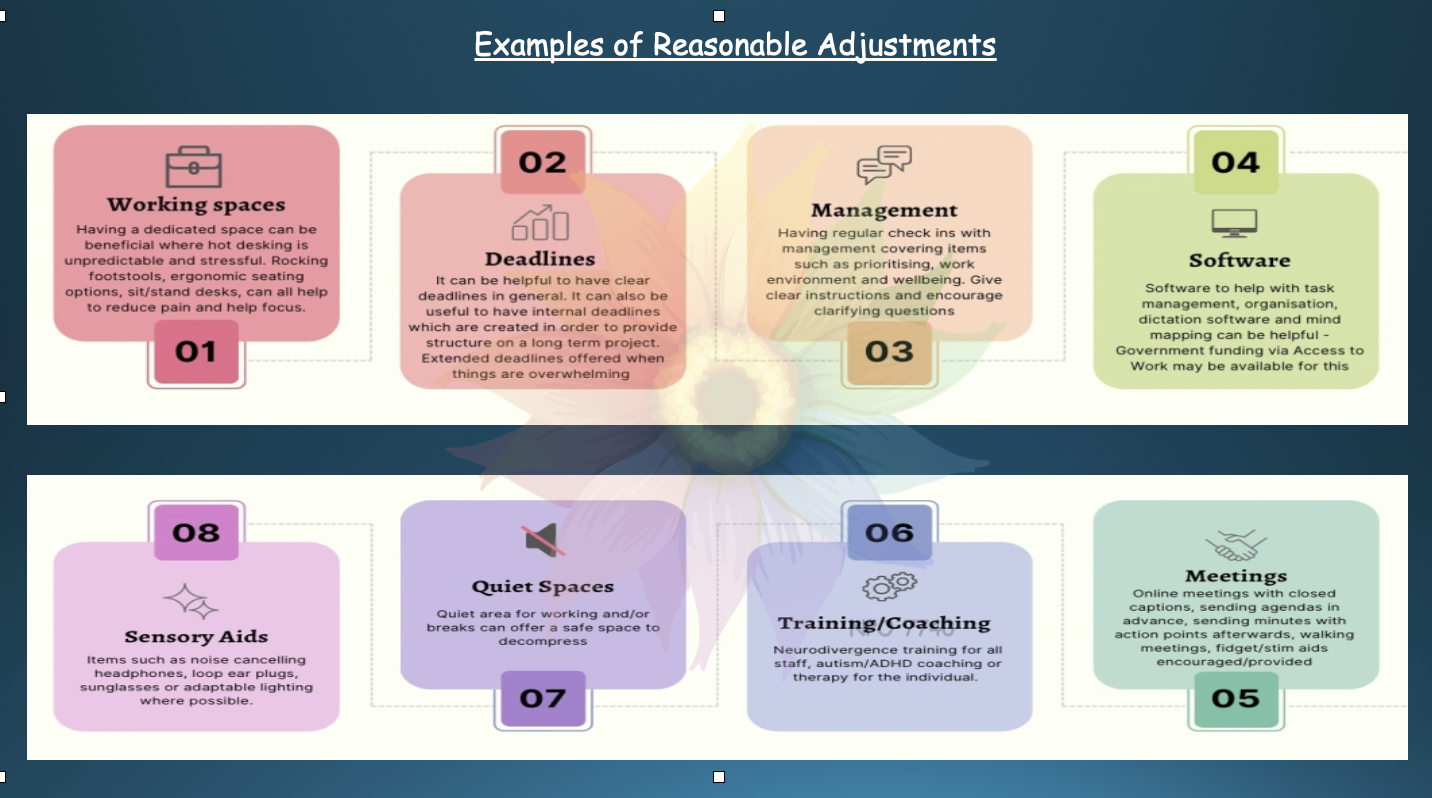


An ADHD organisation has shared ways that employers can become more inclusive to neurodiverse staff – and has urged businesses to sign up for training sessions to find out more.
Non-profit support and advocacy group ADHD Jersey is offering educational workshops to local businesses in a bid to create more inclusive workplaces and uplift the island’s workforce.
These sessions are designed to educate employers and employees on various topics related to ADHD, while also sparking conversations, increasing awareness and reducing stigma.
The charity said they offer companies practical strategies for supporting neurodiversity while helping employees manage their responsibilities.
ADHD Jersey said: "We are eager to share our knowledge and insights on how your company can embrace neurodiversity and foster a more inclusive environment."

Pictured (left to right): ADHD Jersey's secretary Carly Williams, project manager Kizz Moon, and founder Rachel Tippet.
Founder Rachel Tippet added that understanding the benefits of accommodating neurodiverse individuals will lead to improved productivity and enhanced business performance.
She said: "Embracing ADHD-friendly practices is not only beneficial for individuals with ADHD but also advantageous for companies looking to foster a culture of inclusivity and maximise the potential of all their employees."
Mrs Tippet spoke about the importance of reasonable adjustments in the workplace for neurodiverse employees, and the value of companies being willing to try new things and be open to different approaches.
She explained that reasonable adjustments refer to changes an employer can make to reduce the disadvantages faced by an employee or candidate with a disability and said that employers are legally required to make reasonable adjustments when requested by an employee under the Mental Health (Jersey) Law 2016.
"These changes are typically aimed at making it easier for them to apply for a job or perform their duties," she said.

Pictured: Rachel Tippet said there are numerous benefits to creating an ADHD-friendly environment at work.
This could include providing accommodations such as quieter spaces, noise-cancelling headphones, and flexible working arrangements.
Mrs Tippet added that reasonable adjustments take various forms, depending on the individual's needs.
"They can involve modifications to the physical workplace, changes in how tasks are carried out, or providing additional assistance," she said.
"For example, written instructions can be given to someone with memory problems.
"The specific changes needed will vary from person to person. It could involve removing something as simple as a bright light that may be causing discomfort.
"Work arrangements, such as shift patterns or break frequency, can also be adjusted."

Pictured: Examples of Reasonable Adjustments. (ADHD Jersey)
As a peer-led non-profit organisation, ADHD Jersey aims to raise awareness about the condition, reduce stigma, and provide support to those affected.
Workplace wellbeing consultant Jennifer Neill, who recently launched a mental health training and consultancy business, has also spoken about the value of supporting neurodiverse employees at work.
Companies that are interested in learning more and booking a training session with ADHD Jersey can email r.tippett@adhdjersey.org.je.
FOCUS: “It feels like they’re closing the doors on us"
Health considers shutting down ADHD waitlist
Gov to review how mental health medication is prescribed to children
FOCUS: ADHD patients turn to black market amid medication shortages
Comments
Comments on this story express the views of the commentator only, not Bailiwick Publishing. We are unable to guarantee the accuracy of any of those comments.